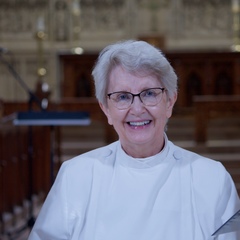“If we are to teach real peace in this world, and if we are to carry real war against war, we shall have to begin with the children.” — Gandhi
Every year in the month of November we are called to remember the hardship and horrors of war. In Canada, young people have been encouraged to research the history and talk with people who experienced the fear and anguish of war, to help prevent these memories from fading with the passage of time. Their studies help them to realize that memories of war remain with people whether they were soldiers in battle, nurses in hospitals, women in factories, or children in bomb shelters.
When we honour Remembrance Day, we often think of two world wars — but there have been many wars in the past 100 years. It seems that armed conflict always exists somewhere in the world. There are children today who know what war is. They know about bombs and missiles, exploding buildings and the deaths of ones they love.
In the first decade of this century, two million children were killed in armed conflict and more than two million children were displaced from their homes. There are places in our world where one of ten soldiers is a child. The unavoidable truth is that wherever there is war, terrorism, or any kind of civil unrest, children will be affected and they will remember.
In the book, One Peace: True Stories of Young Activists, Janet Wilson quotes statements of children alongside pictures of young people actively advocating for peace and cooperation in their countries.
“A child who has lived through war has emotional scars that last a long time.” Bar Ama, 12, Israel.
“Every day, I will do one thing to make peace grow like a flower.” Song, 13, Cambodia.
“In the story of the lion and the lamb, it is a child that leads the animals to lie down peacefully together. I believe children can make this world a better place.” Nickole, 13, USA.
“I want to make a difference, I want to do something — even if it’s small.” Alaina, 10, Canada.
The children and young people in this book are not only speaking up about the plight of children — they are doing something to make a difference. They are writing letters, starting organizations, raising money, and protesting for peace.
“You say children are the future. But we are the present, a present which we all have to build together.” Faris, 15, Columbia.
Young Faris reminds us that Remembrance Day should be remembering the past, the present and the future. From the death and destruction of war, we have the great challenge to work for hope and peace. For the sake of our children and our grandchildren, and for children around the world, we must work together and support the efforts of peacemakers wherever they are.
To learn more, visit War Child Canada (www.warchild.ca) and talk with your PWRDF representative.
The Rev. Canon Dr. Sharyn Hall recently retired as Associate Priest at Christ’s Church Cathedral, Hamilton


Disability Theology and it’s Promise for our Church